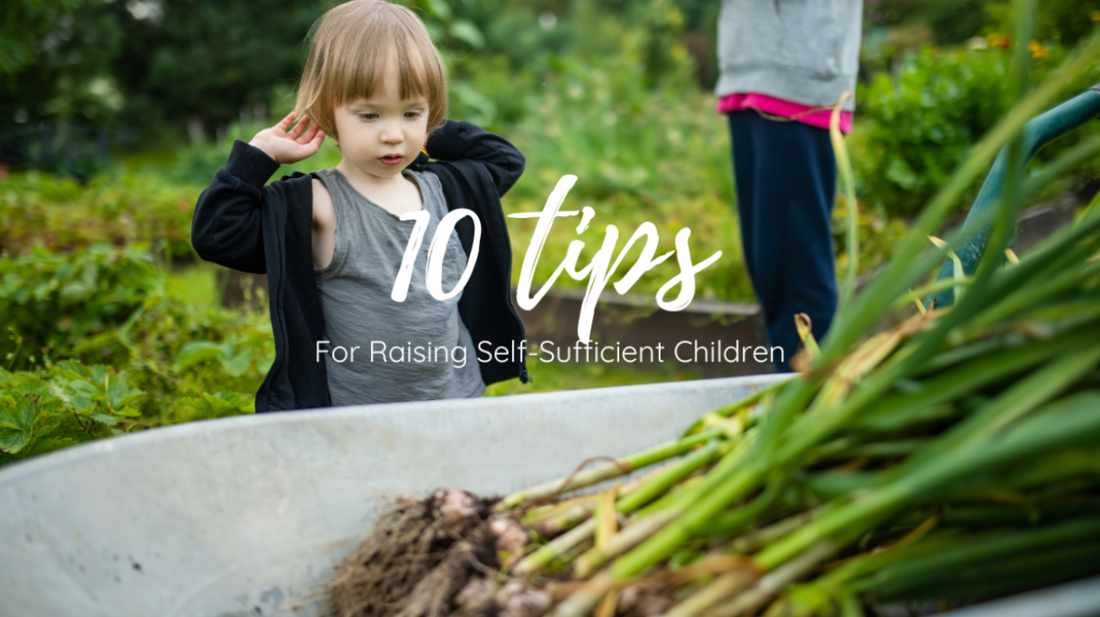
How to Raise Self-Sufficient Children
Ten Tips For How to Raise Self-Sufficient Children:
-
Foster a sense of responsibility: Encourage children to take responsibility for their actions, belongings, and tasks appropriate to their age. Teach them the importance of accountability and follow-through.
-
Encourage independence: Provide opportunities for children to make decisions and take on age-appropriate responsibilities. Gradually increase their autonomy over time, allowing them to learn from their experiences and develop confidence in their abilities.
- Get this FREE Ebook:

-
Teach basic life skills: Introduce children to practical skills such as cooking, cleaning, laundry, and basic home maintenance. Involve them in age-appropriate tasks, teaching them step by step while emphasizing the value and satisfaction of being self-sufficient.
-
Promote problem-solving skills: Encourage children to think critically, find solutions, and make decisions independently. Support them in identifying and overcoming obstacles, fostering their problem-solving abilities.
-
Get FREE pages from my book 'How To Be More Self-Reliant, Naturally' HERE
-
Cultivate a growth mindset: Foster a belief in the power of effort and learning. Encourage children to embrace challenges, view mistakes as opportunities for growth, and persist in the face of setbacks.
-
Allow for reasonable risks: Offer opportunities for children to take safe risks and learn from their experiences. This could include trying new activities, engaging in sports, or participating in creative endeavors that promote exploration and personal growth.
-
Teach financial literacy: Introduce children to the basics of money management, budgeting, and saving. Encourage them to set goals and make choices based on their understanding of financial responsibility.
-
Encourage self-directed learning: Support children in pursuing their interests and passions. Provide access to resources, books, and educational tools that encourage independent learning and exploration.
-
Foster resilience and adaptability: Help children develop resilience by acknowledging their emotions, teaching coping strategies, and highlighting the importance of flexibility and adaptability in navigating challenges and changes.
-
Lead by example: Model self-sufficiency and independence in your own actions and behaviors. Let your children see you taking initiative, solving problems, and valuing self-reliance.
Remember, every child is unique, so tailor these approaches to suit their individual personalities and capabilities. By fostering self-sufficiency in children, you equip them with valuable life skills, confidence, and a sense of empowerment to navigate the world with greater independence and resilience.






